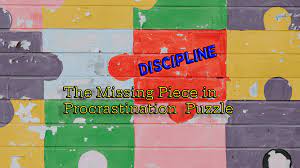By Joy Emiabata
You may delay, but time will not – Benjamin Franklin.
Procrastination is a stealer of pleasure that steals away your time of preparation.
Procrastination and laziness are two different concepts: procrastination involves delaying unnecessarily, whereas laziness involves being voluntarily unwilling to exert necessary effort.
Procrastination has become a dominant puzzle in the life of this present generation and it tends to reflect a person’s struggle with self-control. At some level, procrastinators are aware of their actions and the consequences, but changing their habits required even greater effort than completing the task.
Youth of this generation tends to put away their work to do unnecessary things.
Smartphones and social media have led many down the pathway to distraction, and addiction and created more and more avenues for procrastination. Students tend to enjoy being online all day, watching movies, and fooling around. Students put more value on what is happening today than what will transpire tomorrow. This can make working on tasks something they push off until they have to.
In most cases, procrastination is not a sign of a serious problem. It’s a common tendency that most people give in to at some point or another. Most serious students tend to be hardworking and diligent before that began to pend works which then become an habit. A procrastinator might not see anything wrong with his/her behavior but with time it becomes to have effect on the person personality, mental and social life.
Procrastination can be as a result of depression, feeling of hopelessness, helplessness and a lack of energy which can make it difficult to start and finish the simplest task. There’re some basic reasons people procrastinate; Not knowing what needs to be done, Forgetting, Having nonchalant attitude towards work, Lacking the initiative to get started and Always waiting for the right moment.
Fortunately, there are a number of diverse things you can put in place to fight procrastination which are:
∆ Set small goals- the thought of completing one large task can seem overwhelming. However, breaking such task down can be useful.
∆ Organize your tasks – having a detailed timeline and deadline for every task can also be helpful.
∆ Focus your attention – remove any form of distraction from your environment because distraction can easily derail your progress.
∆ Recognize your weakness – pay attention to any thought of procrastination and do your best to resist the urge.
∆ Work with a study group.
Finally, when you procrastinate you waste time that you are supposed to devote in achieving things. The best way to overcome this is by imagining that you have two selves : your present self and your future self. While the future can set goals the present plans actions, now you are in the present plan for the future then say NO TO PROCRASTINATION.
Joy Emiabata is of the Lagos State University (LASU), Ojo


